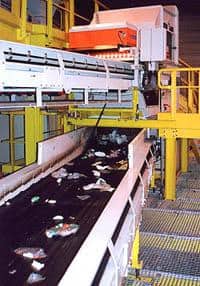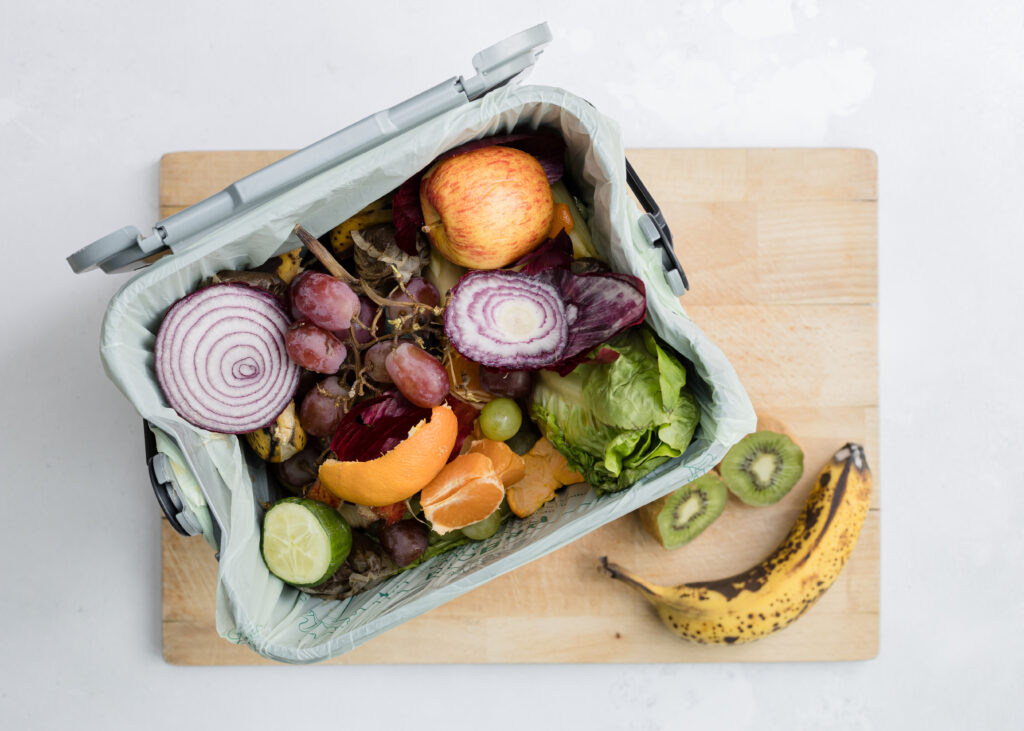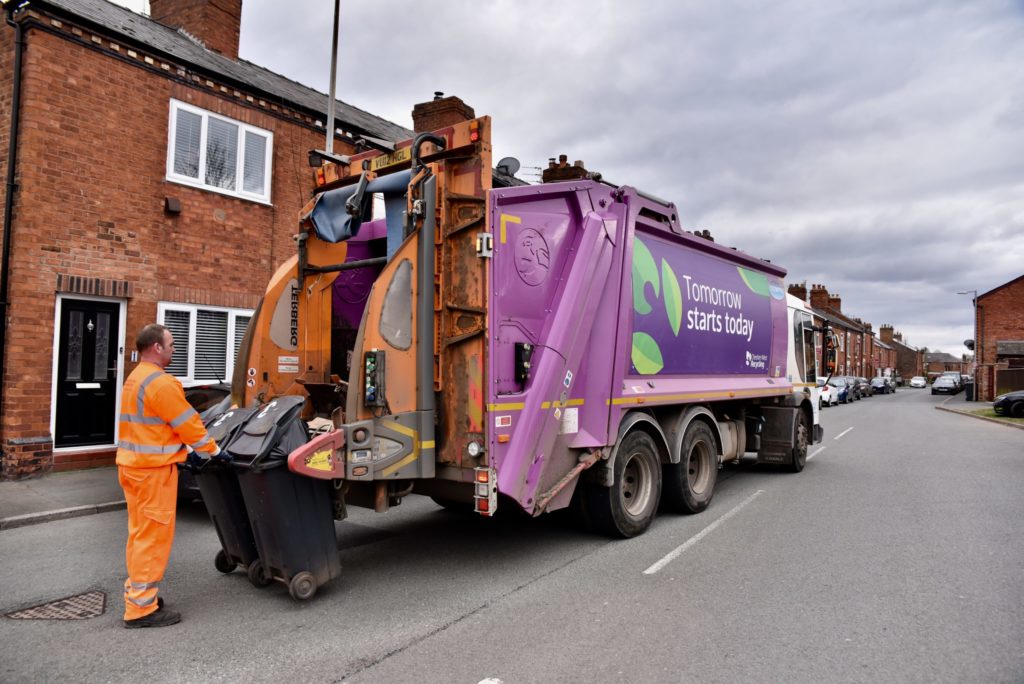The mixed packaging waste is taken to a materials recycling facility on the outskirts of the city to be sorted, a plant constructed by Sero and operated by another joint partnership organisation owned by the city municipality and Sero.
The plant was opened in August 2002 at a cost of 10 million euros (about £7 million), replacing three “outdated” sorting facilities. The facility handles about 60,000 tonnes of packaging waste each year, but with a capacity to process up to 76,000 tonnes each year.
Operated by about eight staff per shift, it involves a complex system provided by equipment manufacturer Hortsmann sorting mixed packaging into metals, paper, card, composite cartons, plastic films, and other plastic types.
Once separated, the plastics go to the Recyclingzentren Brandburg plant operated by Sero's parent company ALBA. Steel and aluminium cans go to metals firm Salzgitter-Stahlwerke and recycled cartons are sent for recycling at the Corenso paper mill in Finland.
Autosort
As well as drum separators, screeners, magnetic belts, ballistic separators, air separators and a certain amount of manual sorting, the plant uses more than 10 Titech “Autosort” machines. These use the different near-infra red signatures of different materials for sorting them.

The plant's titech autosort machines can sort plastics to 95% purity, Sero claims
The autosort machines, shine light onto packaging waste as it approaches the end of a high-speed conveyor belt. The light is reflected off the packaging, and scanned to determine its near-infra red signature. The signature is then compared against standard signatures of packaging materials, and the packaging waste on the belt is then separated – depending on its type – by an air jet as it falls off the end of the conveyor belt.
The company says that the autosort machines can sort plastics including PP, PE, PS and PET to at least 95% purity. Dr Uwe Rantzsch, managing director of Sero Leipzig, explains: “We profited from the experience that has already been gained with automatic sorting. Our goal was to supply maximum-purity material to the Alba-Recyclingzentren Brandenburg at a minimum cost.”
Waste electronics
And, with Leipzig's “yellow bin plus” system, householders are allowed to deposit small electronics in their yellow bins as well as packaging waste, and the Sero plant can also separate these as well using x-rays. The waste electronics project is a two-year pilot, part of DSD's “Innovation Programme 2007”, which is seeking to find new ways to reduce the costs of the green dot programme. The programme is looking into the technical feasibility of the joint sorting of residual waste and lightweight packaging.
The plant's foreman, Hanno Stumpenhorst, says that of the 300 tonnes of mixed packaging waste brought to the Leipzig plant each day, 70% is recycled and only 30% of the material is rejected and has to go to landfill. However, from mid-2005, other arrangements for the residual waste will have to be made. After this date, no household waste will be allowed in Germany's landfills.
Under the regulations, household waste will have to go through some sort of pre-treatment before inert material can go to landfill. This means that a lot of German local authorities are now building incinerators or are looking into other treatment technologies.
DSD international communications director Helmut Schmitz says that of the 25 million tonnes of municipal waste generated in Germany, there is currently treatment infrastructure for all but about four million tonnes.
“The municipalities are progressing well,” he says. “Here in Leipzig, they are building a mechanical biological treatment plant that will process about 300,000 tonnes of residuals a year.”











Subscribe for free